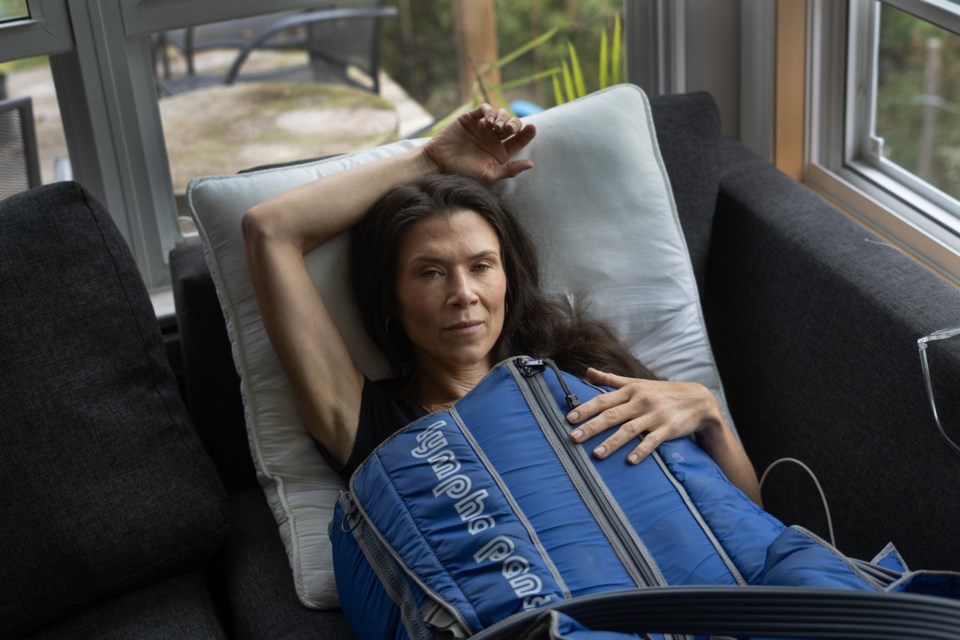HALIFAX — A Nova Scotia woman who fought to have the provincial government pay for out-of-country treatment for a painful leg condition is preparing for surgery in New Jersey.
Jennifer Brady won her appeal before the Nova Scotia Supreme Court last fall after a years-long battle, drawing a public apology from the premier over how the province handled her case.
Her condition — lymphedema — causes tissue to swell from the accumulation of fluids normally drained through the body’s lymphatic system. Brady's lymphedema occurred after her lymph nodes were removed during a radical hysterectomy in 2019 to treat cervical cancer.
The 47-year-old Halifax resident says the planned treatment gives her hope, though she realizes there are still unknowns about its effectiveness, and many months of recovery lie ahead of her.
"I can now imagine a time when I can take my children to the beach for a full day, or take them to Ontario without having to limit the trip," she said in an interview Tuesday.
Brady's condition requires her to spend four to six hours each day in a full-body massage machine that helps move fluid in her legs to reduce swelling.
She said she met with her American surgeon this week, had images of her legs taken, and is expecting to receive a date for the operation after a method is chosen. She said she is hopeful it will be in the next couple of months.
"He (the surgeon) is going to consult with other lymphedema experts around the world and figure out exactly what the best surgical approach is," said Brady.
She said one method being considered involves having healthy lymph nodes taken from one part of her body and transplanted into her legs. "Hopefully, this will improve the condition of my leg at minimum. It will almost certainly reduce the number of infections I have," she explained.
"Those infections not only threaten my life but also make the swelling worse. And that's part of the downward spiral of lymphedema infections: more swelling, more infections, more swelling, and so on."
Brady spent more than $60,000 on a 2022 surgery in Japan after the province declined to fund her treatment. She said after that operation her swelling decreased and some symptoms were relieved.
As her battle to receive treatment dragged on, Brady said last year she started to despair and decided to request medical assistance in dying — which the health system refused.
Now, while Brady said she's still anxious over whether surgery will fully succeed, "at least I can hope."
In last year's court decision, Nova Scotia Supreme Court Justice Timothy Gabriel overturned the province’s “unreasonable” refusals to reimburse Brady and Crystal Ellingsen, who suffers from another debilitating disorder called lipedema in her legs and arms, for their treatments.
In his decision, Gabriel said the province’s review of their cases wasn’t transparent and was replete with errors, and the rejection was unreasonable because “in reality, there was nobody in Canada who could treat either of their conditions.”
He criticized the department’s process of sending the women to specialists who had years-long waiting lists and were not going to be able to provide a referral for the out-of-country treatment.
The judge said the applicants in the case were attempting to function "through a miasma of debilitating and chronic pain," and found themselves in a nightmarish situation.
After the legal decision, Premier Tim Houston apologized to the two women, pledged they would be repaid for their health costs, and wrote to the auditor general to request a review of the way the Health Department handled the cases.
This report by The Canadian Press was first published Feb. 5, 2025.
Michael Tutton, The Canadian Press



